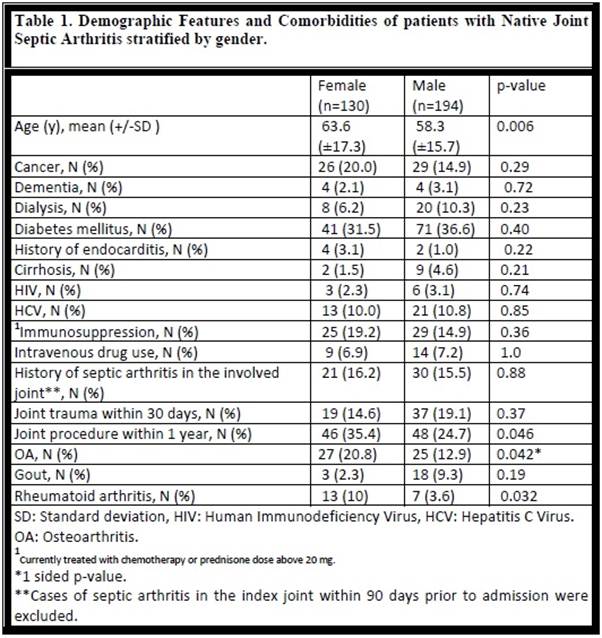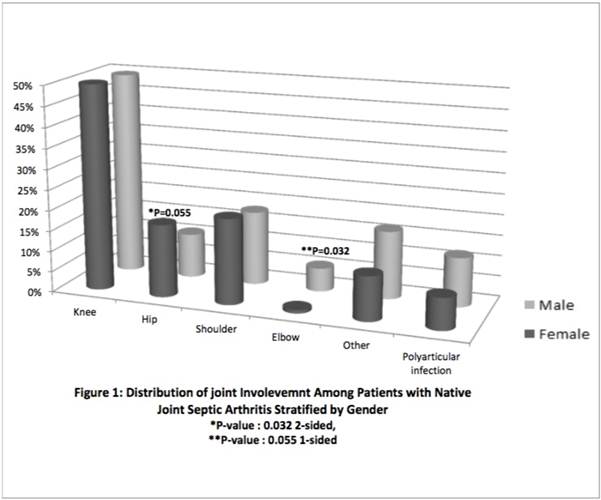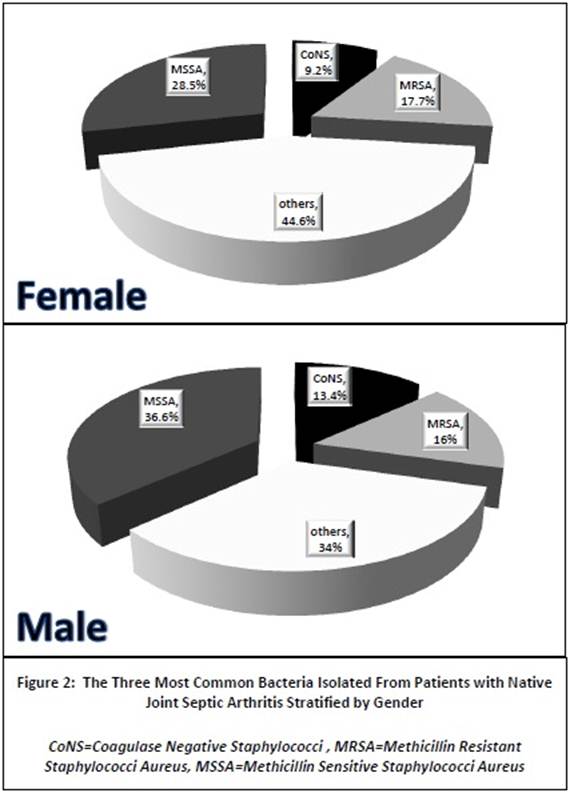Session Information
Session Type: ACR Poster Session B
Session Time: 9:00AM-11:00AM
Background/Purpose: Approximately 20,000 cases of septic arthritis (SA) occur in the United States each year with 2-10 cases per 100,000 person-years in the general population. SA is more common in men while women are three times less likely to have joint replacement surgery. It is currently unknown whether gender-related differences exist in the presentation, intervention and outcomes of patients with native joint septic arthritis (NJSA).
Methods: We conducted a retrospective study that included patients aged 18 and older admitted to a single tertiary care hospital between 1998 and 2015 diagnosed with monoarticular NJSA and treated surgically. We excluded all cases of osteomyelitis, septic bursitis, and prosthetic joint infection. We reviewed the patients’ charts and collected specific data including the patients’ demographic information, comorbidities, clinical presentations, microbiology, management and outcomes. A comparison was made between men and women with p-values of < 0.05 defined as the threshold for significance.
Results: Of the 324 patients with NJSA, 130 were female (40.1%). Women were significantly older at presentation than their male counterparts (mean age: 63.6 versus 58.3 years; p = 0.006). Overall, the frequency of comorbid conditions was similar between groups. Prior joint pathology in the involved joints was more common among female patients, including osteoarthritis (20.8% vs 12.9%; p = 0.042) and rheumatoid arthritis (10% vs 3.6%; p = 0.032). The knee was the most commonly involved joint (~50% in both groups). A trend towards a higher frequency of hip involvement was observed in women (17.7% vs 10.8% p = 0.05). There were no observed differences in the clinical presentation, culture results, management (e.g. antibiotics and surgery), or outcomes between the groups.
Conclusion: Compared to men with NJSA, women with NJSA present at an older age, with more prior joint pathology and a higher frequency of hip involvement. It appears that these differences have no significant impact on the presentation, management, and outcomes of NJSA.
To cite this abstract in AMA style:
Nissim L, Fowler ML, Shmerling R, Lieber S, Naffaa M, Paz Z. The Impact of Gender on the Clinical Presentation, Management and Outcomes of Patients with Native Joint Septic Arthritis [abstract]. Arthritis Rheumatol. 2018; 70 (suppl 9). https://acrabstracts.org/abstract/the-impact-of-gender-on-the-clinical-presentation-management-and-outcomes-of-patients-with-native-joint-septic-arthritis/. Accessed .« Back to 2018 ACR/ARHP Annual Meeting
ACR Meeting Abstracts - https://acrabstracts.org/abstract/the-impact-of-gender-on-the-clinical-presentation-management-and-outcomes-of-patients-with-native-joint-septic-arthritis/



